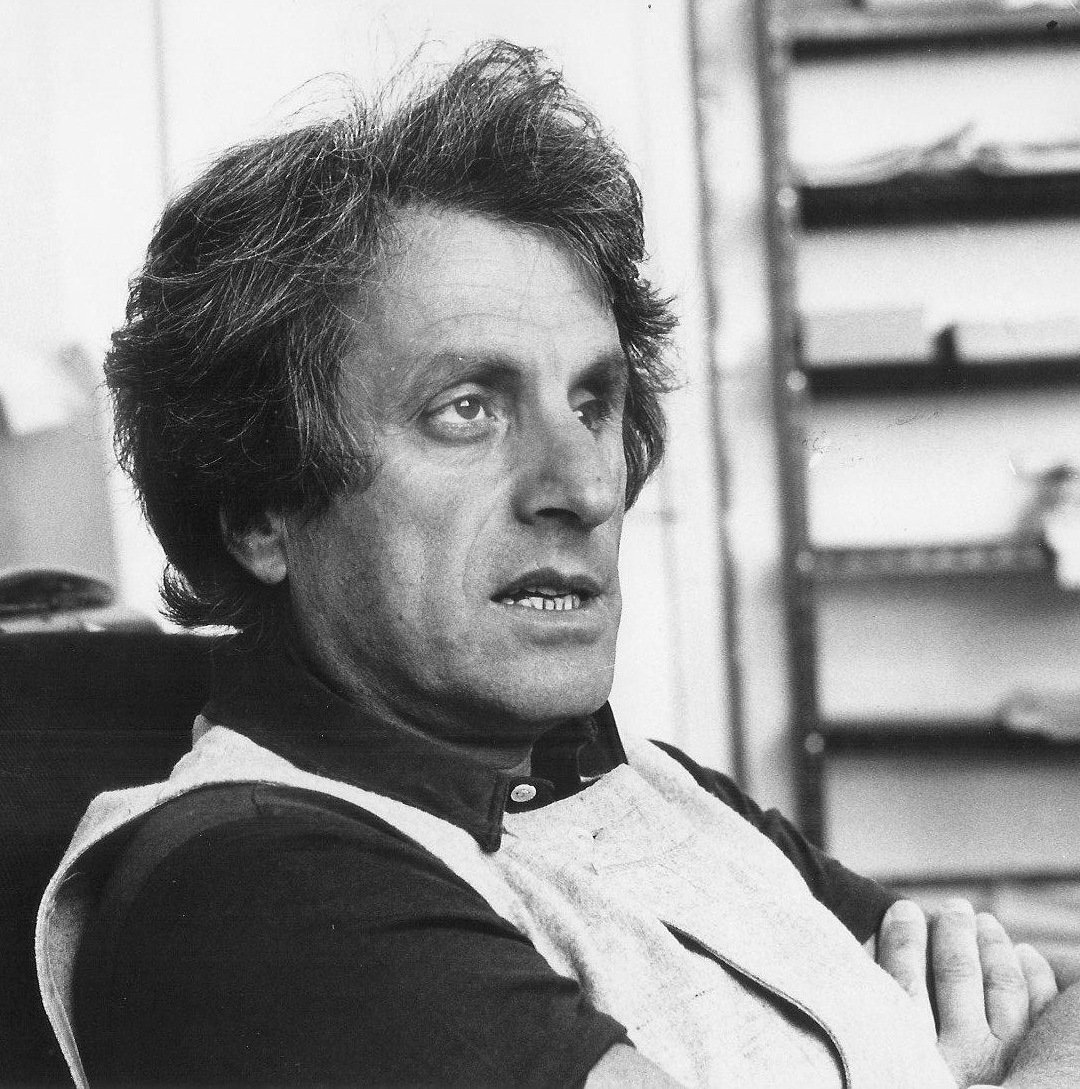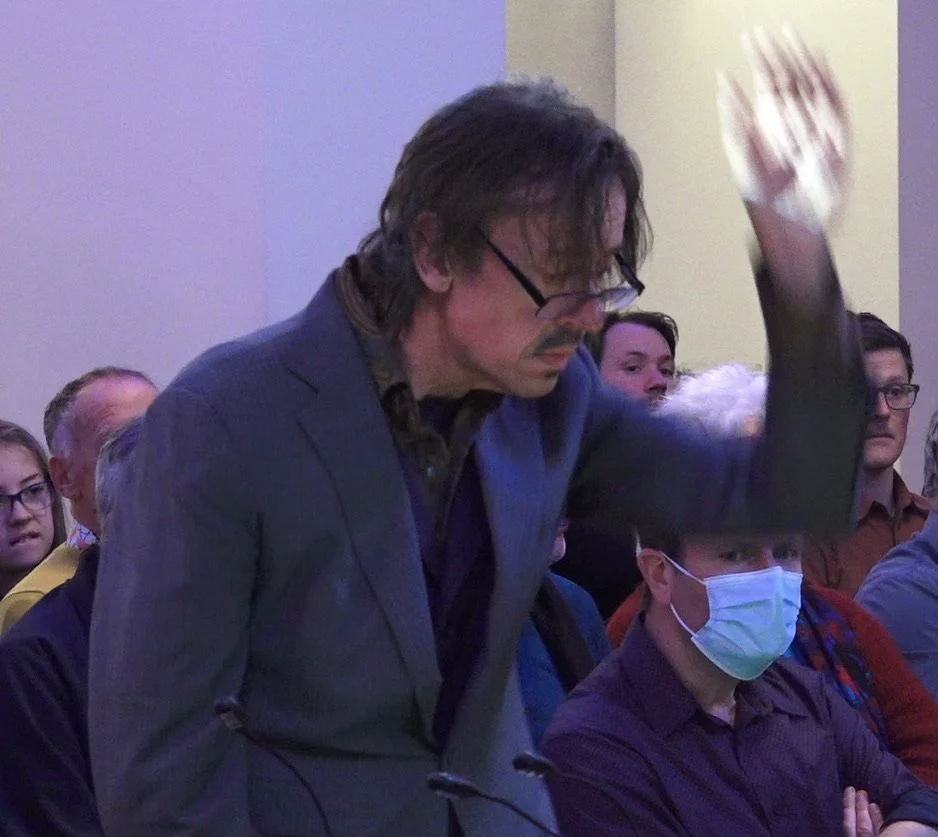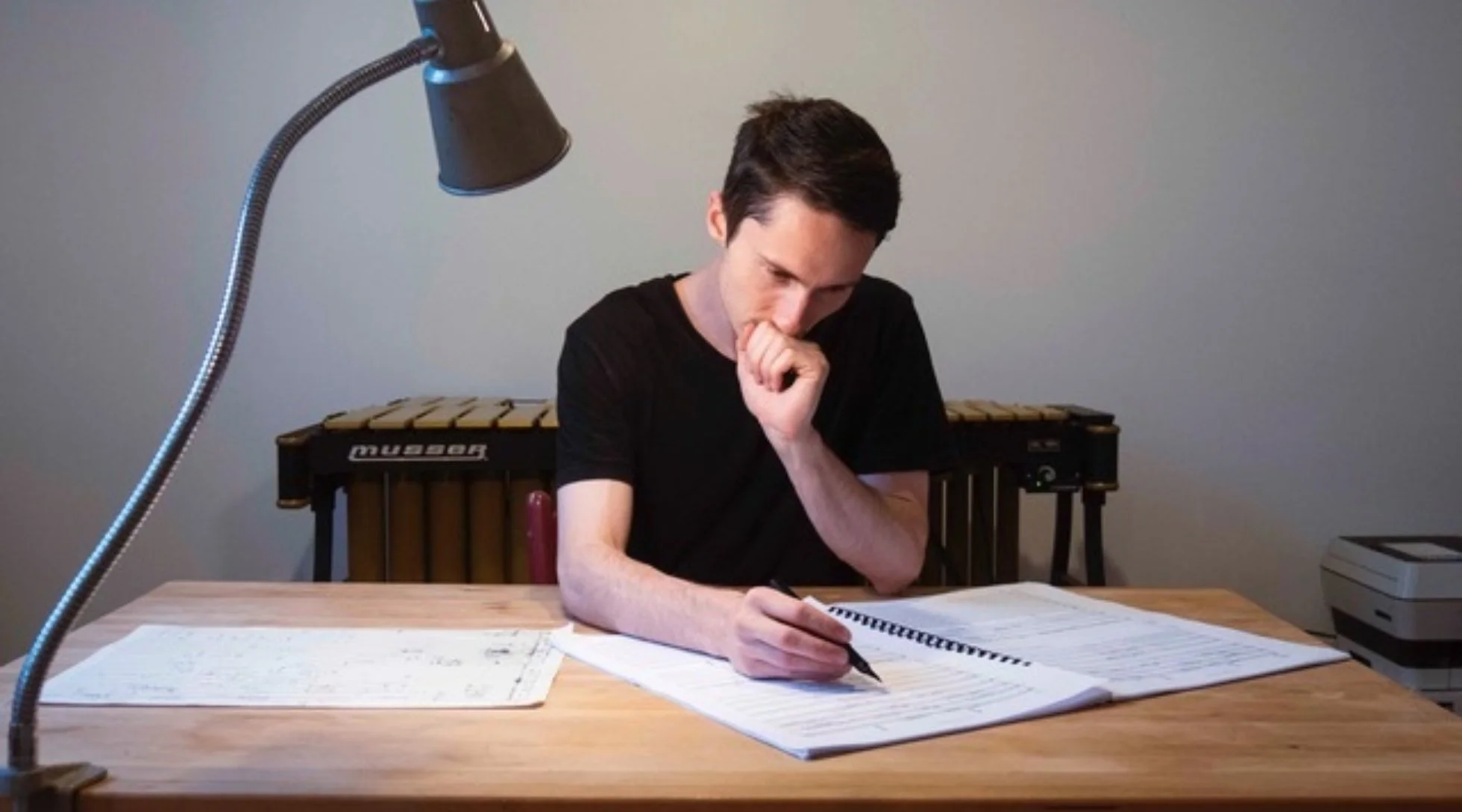STROMA: Dream Architects
Soprano Barbara Paterson with contemporary ensemble STROMA - locating our musicians and composers in a rich global musical environment
Image credit: Chris Watson SOUNZ
Stroma’s recent Wellington concert, Dream Architects, paid homage to Iannis Xenakis, a Romanian-born Greek-French composer, music theorist, architect and engineer who played an influential role in the 20th century avant garde. This year marks the 100th anniversary of his birth. The brilliant programme, yet more evidence of Stroma’s audacious and intelligent curation, included two of his works alongside music mostly by composers of Aotearoa, with no fewer than three world premieres, and two New Zealand premieres.
Rebonds A, a short work by Xenakis, opened the evening. Paring his ensemble back to a solo performer on a variety of drums, Xenakis explored the building blocks of sound, pitch, timbre, duration and volume, creating an arch described in the programme note as “one long metric accelerando”. Percussionist Thomas Guldborg subtly danced his way through the increasingly virtuosic piece, a great opener for the programme.
Composer Iannis Xenakis (1922-2001)
…avant garde composer, music theorist, architect, engineer and performance director.
Dunedin composer Ihlara McIndoe is currently studying at McGill University in Canada so couldn’t attend the world premiere of her highly imaginative and intriguingly titled new work for ensemble and voice. I write and chew and crack my bones and think about hospitality expresses what the composer calls “my ruminations on life as an artist in an increasingly corporatised sector”. She would have been delighted by the committed performance by a first-rate septet of mostly NZSO principals conducted by co-artistic director of Stroma Hamish McKeich. Soprano Barbara Paterson relished the text with her quirky theatrical style and gentle humour while Gabriela Glapska’s beautiful piano flourishes shone within the ensemble’s accompanying textures.
Stroma has a well-established programming policy of featuring New Zealand composers and their international contemporaries alongside 20th century modernist masters. Icelandic composer Anna Thorvaldsdottir wrote Spectra in 2017, a string trio with six linked short movements. A kind of musical “pass the parcel”, its counterpoint has a mysterious flow, gliding, rustling, singing and murmuring in a very effective and appealing work.
It was followed by a work very different in atmosphere and intention, though Xenakis also chose strings for his edgy, gritty duet for violin and cello called Dhipli Zyia. The title translates as “double symmetry” and the influence of Bartok’s use of folk music is clear. Violinist Anna van der Zee and cellist Heather Lewis plunged headlong into the virtuosic and driving charge of the work, finding as well soulful moments of repose in a great piece which waited half a century for its first performance in 2000.
Stroma’s co-artistic director Michael Norris expertly offered short introductions to the works in the programme, describing Gemma Peacocke’s A Memory as “lush, romantic and gorgeous”. Peacocke, a New Zealander who has worked for many years in Brooklyn, New York, describes some of her music as “avant-pop”. This work has an exotic and sensuous flow, setting a poem by Lola Ridge, who, born in Ireland, grew up on the west coast of New Zealand, living most of her eventful adult life in New York. The lovely work offered yet another nice contrast in the programme, the poem lovingly sung by Paterson, the vibraphone a delicious presence in the ensemble and the whole steered in its circling repetitive textures by McKeich’s gentle and thoughtful musicianship.
Conductor Hamish McKeich
“…gentle and thoughtful musicianship.”
Image credit: Chris Watson SOUNZ
Reuben Jelleyman’s Klein Fountain for flute, cello, percussion and piano was written and premiered last year by the Ensemble Contemporain in Paris, where he has been studying and working. Jelleyman, a finalist for the SOUNZ Contemporary Award last year with this work and again a 2022 finalist, has returned to live here and attended this New Zealand premiere. The title, he says, refers to mathematician Felix Klein's bottle, “an object representing four spatial dimensions, and the imagination of time flowing as though the water passing through this bottle”. Klein Fountain was the most experimental piece on Stroma’s programme, an intriguing work with a strong structure and intense presence. The short dramatic gestures are initially separated by equally dramatic silences, moving to a more continuous flow as the musicians explore a wide range of timbes, interrupted by the punctuating clap of an increasingly urgent slapstick.
Composer Reuben Jelleyman
…his Klein Fountain was written and premiered in Paris.
The concert ended with the third world premiere and the dream theme of the title. The composer of Dream Compass, Christchurch-based Chris Cree Brown, talked about “lucid dreams” which can be steered by the dreamer. The ten accomplished musicians of the ensemble worked at times in concerted groups, all strings or all woodwinds, a strong sense of momentum, direction and musical argument punctuated by two percussionists and by dramatic, assertive piano gestures. Building volume and intensity, the work reached a big, effective climax near the end and was well-received by the audience.
The good-sized crowd was enthusiastic about the whole programme and consistently outstanding performances. Dream Architects is the most recent example of Stroma’s strong commitment to locating our contemporary musicians and composers in a rich global musical environment. The past few years could have led to a parochial turning inwards in our artistic communities. Instead, this concert celebrated how international we are, featuring New Zealand composers who are or have been working overseas, top performers, many of whom have come to New Zealand from elsewhere, and repertoire that connects us to a wider world.
I recommend joining Stroma’s mailing list, so you don’t miss their essential and invigorating concerts. You can sign up here.
STROMA “Dream Architects: An exploration in sound” 6 October 2022 at the Public Trust Hall, Wellington
Michael Norris (Co-Artistic Director), Hamish McKeich ( Co-Artistic Director and Conductor) Barbara Paterson (soprano), Anna van der Zee and Megan Molina (violins), Nicholas Hancox (viola), Heather Lewis (cello) Alexander Gunchenko (double bass), Bridget Douglas (flutes), Niels Dittman (oboe), Patrick Hayes (clarinet) Shannon Pittaway (trombone) Thomas Guldborg, Lenny Sakofsky and Sam Rich (percussion).




